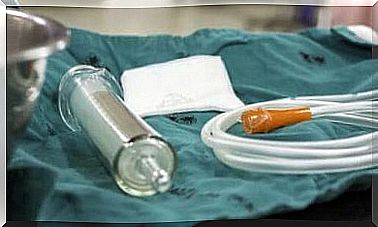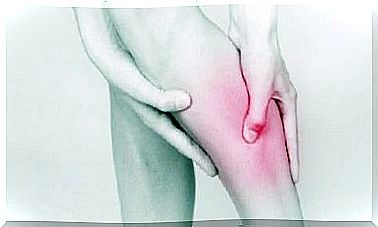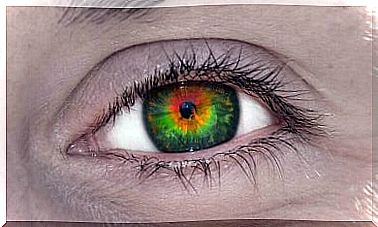6 Signs Of An Inflamed Liver

Inflamed liver, a condition also known as hepatomegaly or liver inflammation. It is a health condition that develops when the organ increases in size and presents a wide range of symptoms.
This pathology has become very common nowadays. To learn how to detect it, we recommend that you continue reading this article.
The liver, a key organ
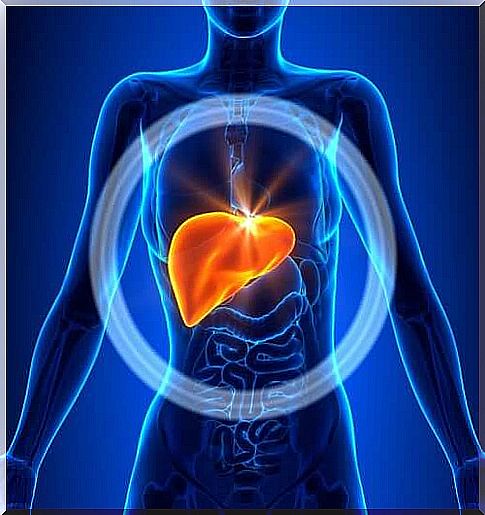
The liver is the organ responsible for carrying out the body’s clearance functions. It acts as follows:
- Detoxifies.
- Cleanses the blood.
- Fight against different diseases.
- Stores vitamins and energy.
- It secretes bile, a substance necessary to carry out digestive activities.
hepatomegaly
Hepatomegaly is defined as pathological enlargement of the liver. It is not an illness as such, but a sign of an underlying problem, that is, a manifestation of an illness.
Hepatomegaly doesn’t just involve an enlarged, or swollen, liver. It also means that this organ will exceed the limits considered normal for you, which can cause a lot of discomfort.
In turn, the organs around you will no longer function as they should. So when the liver is in bad condition, the rest of the body starts to fail.
How do I know if my liver is inflamed?
Finding out if the liver is inflamed is not an easy task. However, there are some symptoms that may indicate that we should see a doctor.
1. Pain

Although the pain may be silent at first, its intensity increases with each passing day. The characteristic of this pain is its location: it always affects the upper right side of our abdomen.
At the same time, it is possible to have swelling in the abdomen. This inflammation will gradually increase over time.
2. Fever
Fever is a sign of altered health in our body due to infections, viruses or bacteria. However, it can also be related to the liver.
If there is a continuous fever, it means that something is not going well with our body. In case of an inflamed liver , it is common to have fever regularly.
3. Jaundice
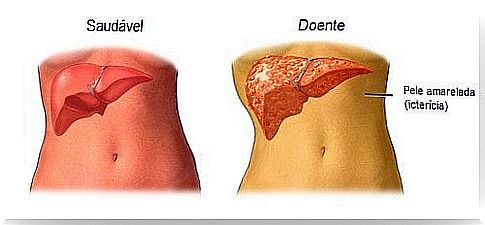
Jaundice is very much associated with the health of our liver. When this organ is in poor condition, you notice your skin and eyes turn yellow.
This symptom is caused by an increase in bilirubin in the blood. It always reminds us of some kind of liver disease.
4. Nausea
Remember that the liver is responsible for eliminating toxins and substances that our bodies cannot process. This brings us to another characteristic symptom: nausea
When this organ fails, it has difficulty digesting some foods, causing nausea and general malaise. For example, among them are those that contain excess fat, salt, flour and even those that are highly seasoned.
5. Feces
We can always see the result of our body’s health through feces and urine. While this is not pleasant to pay attention to, it is beneficial to stop and watch for a few seconds.
When this organ fails, it can cause the stools to become pale, and even white. The urine, in turn, acquires a very dark color and an acidic consistency.
6. Bad taste in the mouth
A bad taste in the mouth is also a common symptom of liver inflammation. However, there are other pathologies that can present this characteristic.
This bad taste in the mouth is due to the accumulation of toxins and substances that the liver should eliminate. This produces bad odors that are redirected to the mouth, causing bad tastes.

What are the causes of an inflamed liver?
As the liver is an organ connected to all processes in our body, many factors can affect it, such as:
- Overweight.
- Obesity.
- Alcoholism.
- Bacterial infections.
- Drug poisoning.
- Hepatitis virus infection.
Aspects to consider
If you feel uncomfortable and are concerned, see a doctor for an evaluation. You should not resort to self-medication or natural remedies under any circumstances, as they may be counterproductive.




